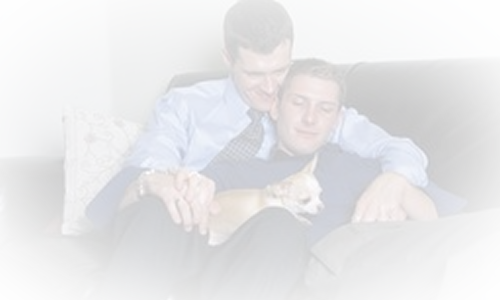National Complaints Policy & Procedures August 2022
This policy covers complaints from people who have been clients of a Relationships Scotland Member Service.
This policy is to be read alongside the following documents:
• Guidance for People wishing to Make a Complaint
• Guidance for People who are Complained Against
• Guidance for Member Services investigating Complaints
If you wish to make a complaint but have not been a client of a Relationships Scotland Member Service, it may be that the National 3rd Party Complaints Policy and Procedure would be best suited to address your complaint. This is available from your nearest Relationships Scotland Member Service.
Anonymous complaints will be dealt with through the National 3rd Party Complaints Policy and Procedure.
NATIONAL COMPLAINTS POLICY
Relationships Scotland Member Services seek to react quickly and collaboratively to any issue raised by a client.
This policy covers complaints that may arise from counselling, mediation, child contact centres and all other family support services provided by Relationships Scotland Member Services.
If you require the policy and accompanying procedures in a different language or format, or require any assistance or advice on how to follow the complaints procedure, then please advise the Manager who will then offer appropriate assistance.
Anyone who becomes involved in the complaints or appeal process who thinks they may have a conflict of interest must declare this interest to the Service Chair who will ensure that conflicts of interest will not affect the process.
The complaints process can be halted at any time if it emerges that any child or vulnerable person is at risk, or if legal action is underway, pending or intended. The complaint process cannot be restarted until such issues have been resolved.
This policy seeks to:
• Quickly and effectively resolve matters in a co-operative way. At all stages of the process (see below) the complaint will be discussed with the individual/s that raised the issue and with the person/s complained against. The process will be kept confidential and will only involve people who are directly involved in the complaint or are part of the investigation process.
• Ensure that a written record of the complaint process is kept at all stages of the process. All information relating to the complaint will remain in a confidential file for 3 years after which time it will be destroyed, unless the complaint is related to a child protection issue in which case the record should be kept in perpetuity.
• Give both the complainant and the individual(s) complained against the right to fully express their views throughout the full complaint and appeal process.
Complaints are accepted within one year of the date of an incident occurring. Every effort will be made to resolve complaints as effectively and as quickly as possible.
Some complaints may take longer to resolve. The maximum time for a complaint and potential appeal to be processed should normally be no longer than 6 months.
If the complaint is against a worker who has since left a Member Service, any investigation will be conducted for the learning of the organisation e.g. to identify any systemic failures. In these cases the complaints process would still apply and wherever possible the person complained against would be offered the opportunity to represent their own interests.
STAGES
Clients should raise their concern at 1,2 or 3 as appropriate to the nature of their complaint
1. Contact frontline staff directly
Informal Complaint Stage
The client is first encouraged to speak to the practitioner / worker involved if possible. If this is not possible or doesn’t resolve the issue then the client should contact the Manager of the Service in person, by phone, email or letter. The Manager will aim to resolve the matter with the client.
2. Service Manager
Formal Complaint Stage
If matters are not resolved at Stage 1 , a written complaint can be lodged with the Manager of the Service, who will manage (but not investigate) the complaint process. This should be marked Private and Confidential and posted to the main office of the Member Service where the client received a service.
3. Chair of the Service Board
Formal Complaint Stage
If the complaint is against the Manager of the Service, the client should write to the Service Chair at the Service main office and either the Chair or someone from the Board of Management will take the complaints process forward.
Appeal Stage
An appeal can only progress if new evidence comes to light that was not considered when the original complaint was made, or if the correct process was not followed during the investigation of the complaint.
Complaint to COSCA
If the client attended a Member Service that is also a Member of COSCA (Counselling and Psychotherapy in Scotland) and the complainant is not satisfied after the appeals process is completed, the client can submit a complaint in writing to COSCA at 16 Melville Terrace Stirling FK8 2NE
The role of COSCA would be to verify that the complaints and appeals procedures had been followed correctly and that there had not been a breach of the COSCA Statement of Ethics and Code of Practice in the course of investigating the complaint.
Complaints relating to counselling can be made to COSCA within one month of the completion of the Appeal process. COSCA’s complaints procedure can be viewed here:
CP_2018_JULY_CURRENT.pdf
Help with writing letters or submitting a complaint in another format can be obtained from the Citizens Advice Bureau, Advocacy Service or similar organisation. The complaint will be formally considered and the client and anyone complained against will be advised of the outcome of the complaint in writing.
We do understand that the circumstances around a complaint can sometimes lead to heightened emotions and we will do our best to help resolve matters as quickly and effectively as possible. However, if a complaint is accompanied by aggression on the part of the complainant, harassment of any member of staff, board member or volunteers in person or by written communication or unwillingness to accept the terms of the complaints procedure – the Member Service is within its rights to refuse to meet with the complainant during the process and restrict communication to emails only. Harassment or intimidation of workers will not be tolerated.
Informal Stage
The client is first encouraged to speak to the practitioner / worker involved if possible. If this is not possible or doesn’t resolve the issue then the client should contact the Manager of the Service or Chair if they prefer. They will aim to resolve the matter informally with the client ideally within 15 working days of the original concern being made known. This may be able to resolve the issue without proceeding to a formal complaints process. If the client requests a paper copy of the complaints procedure, they will be given details of who / where to send the complaint. The Manager
Formal Complaint Stage
If it is not possible to speak to the practitioner / worker Manager involved for whatever reason or this doesn’t resolve the issue, the client should contact the Manager of the Service formally by email or letter who will manage (but not investigate) the complaint process. If the complaint is against the Manager of the Service the client can contact the Service Chair. If it is not possible to submit a compliant in writing, assistance to submit in another format will be offered. The Manager / Chair will determine if there is a sufficient case to support processing the complaint for investigation. The complainant is required to give permission for confidential information to be shared with those involved in handling the complaint. The complainant can formally withdraw the complaint at any time.
The correspondence should be marked Private and Confidential and a letter posted to the main office of the Member Service where the client received a service. The letter/email must be sent within one year of the incident(s) relating to the complaint. The complaint will then be formally investigated by one or more Board members, if they are deemed suitably impartial to undertake this role. Should Board members not be deemed to be suitably impartial, then an independent third party would be appointed to undertake the investigation. There may be times that a complaint raises issues that may require the Member Service to seek legal or other specialist advice.
Help with writing letters can be obtained from the Citizens Advice Bureau
The formal complaint letter will be acknowledged by the Manager/ Chair of the Service within 10 working days of receipt.
Within 20 working days of the complaint being received, the client will be invited to a meeting with the Board members responsible for investigating the complaint. The client will have 20 working days from receipt of this letter to agree to attend a meeting otherwise the complaint will be deemed to be closed. This meeting should take place as soon as possible. The client can be accompanied but not represented by another person at this meeting. The meeting can take place online or via telephone if mutually agreed.
People who are being complained against will be fully advised of the details of the complaint against them as soon as a complaint is received. They will be invited to attend a separate meeting with the Board members responsible for investigating the complaint This meeting should take place as soon as possible. A person complained against can be accompanied but not represented by another person at this meeting.
The Board members responsible for investigating the complaint will send a letter confirming the outcome of the complaint to the client and anyone complained against within 20 working days following the last meeting held.
In exceptional circumstances at the discretion of the person leading the investigation, the process may be adjourned and restarted at the point at which it stopped as soon as it is possible.
Should someone who was complained against have a complaint upheld against them, they may be subject to disciplinary action. National Disciplinary Procedures would be followed. Potential sanctions include verbal warning, first written warning, final written warning and dismissal. The person complained against would be advised by the Member Service who employs them of any sanctions imposed and how they would be monitored.
Due to data protection restrictions, people who make a complaint will not be advised of any specific sanctions against the person or people they made a complaint about.
If a complaint is upheld and is related to the provision of counselling, then even if the person complained against has left the organisation the outcome report will be submitted to COSCA within one month of the conclusion of the complaints process. COSCA will publish upheld complaints and their sanctions.
Member Services should check with their insurance providers for the length of time they should keep records of any upheld complaint
Appeal Stage
An appeal can only progress on the following grounds:
• New evidence is available that was not considered when the original complaint was investigated, and/or;
• The correct process was not followed during the investigation of the complaint.
The appeal must be lodged by the client in writing within 20 working days of the date of the letter confirming the outcome of the original complaint. The letter should be addressed to the Manager of the Service. The letter must contain the grounds for the appeal. The Manager of the Service will acknowledge receipt of the letter within 10 working days, and will inform anyone complained against that an appeal has been lodged.
The Manager of the Service will arrange for an Appeal Panel to consider the grounds for appeal. The panel will consist of a Board member (who has not been involved in the process so far) from the Member Service who considered the complaint, a Manager or Board member from another Relationships Scotland Member Service and the Chief Executive or Board member from the Relationships Scotland National Office.
The Appeal Panel will consider whether or not there are grounds for the appeal to progress. The Panel will write to the client and to anyone complained against within 20 working days of the appeal being received by the Service. stating whether or not the appeal meets the requirements to proceed. If not the matter is deemed closed and the service will not enter into any more correspondence with the client in relation to the original complaint or appeal.
If the appeal is to proceed, the Panel will wish to discuss the appeal with the client and with anyone who was complained against. The Panel will contact the client and anyone complained against to offer the opportunity to meet with the Panel. The client will have 20 working days from receipt of this invite letter to agree to attend a meeting otherwise the right to appeal will be lost. The meeting should take place as soon as possible. The client and anyone complained against must attend any meeting with the Panel in person or online as mutually agreed and can be accompanied but not represented by another person.
The Chair of the Appeal Panel will write to the client and anyone complained against within 20 working days of the last meeting held to let them know the outcome of the appeal. The setting up of meetings and the deliberations of the panel may take some time, however the appeal process should take no longer than 3 months from the date of the appeal being lodged.
Complaint to COSCA
If the client attended a Member Service that is also a Member of COSCA (Counselling and Psychotherapy in Scotland) and is not satisfied with the outcome after the appeals process is completed, the client can submit a complaint in writing to COSCA at 16 Melville Terrace Stirling FK8 2NE. The role of COSCA would be to verify that the complaints and appeals procedures had been followed correctly and that there had not been a breach of the COSCA Statement of Ethics and Code of Practice in the course of investigating the complaint.
Complaints relating to counselling can be made to COSCA within one month of the completion of the Appeal process. COSCA’s complaints procedure can be viewed here: CP_2018_JULY_CURRENT
















